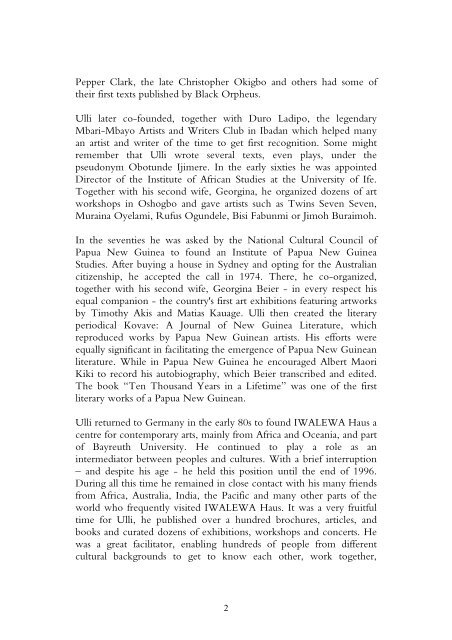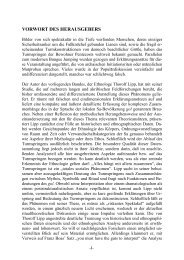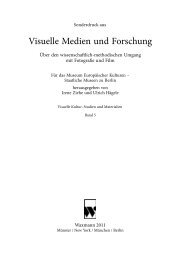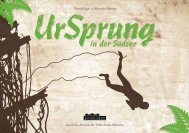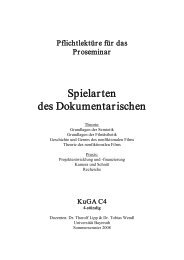A guiding spirit who refused to be adored Ulli Beier ... - Thorolf Lipp
A guiding spirit who refused to be adored Ulli Beier ... - Thorolf Lipp
A guiding spirit who refused to be adored Ulli Beier ... - Thorolf Lipp
You also want an ePaper? Increase the reach of your titles
YUMPU automatically turns print PDFs into web optimized ePapers that Google loves.
Pepper Clark, the late Chris<strong>to</strong>pher Okigbo and others had some of<br />
their first texts published by Black Orpheus.<br />
<strong>Ulli</strong> later co-founded, <strong>to</strong>gether with Duro Ladipo, the legendary<br />
Mbari-Mbayo Artists and Writers Club in Ibadan which helped many<br />
an artist and writer of the time <strong>to</strong> get first recognition. Some might<br />
remem<strong>be</strong>r that <strong>Ulli</strong> wrote several texts, even plays, under the<br />
pseudonym Obotunde Ijimere. In the early sixties he was appointed<br />
Direc<strong>to</strong>r of the Institute of African Studies at the University of Ife.<br />
Together with his second wife, Georgina, he organized dozens of art<br />
workshops in Oshogbo and gave artists such as Twins Seven Seven,<br />
Muraina Oyelami, Rufus Ogundele, Bisi Fabunmi or Jimoh Buraimoh.<br />
In the seventies he was asked by the National Cultural Council of<br />
Papua New Guinea <strong>to</strong> found an Institute of Papua New Guinea<br />
Studies. After buying a house in Sydney and opting for the Australian<br />
citizenship, he accepted the call in 1974. There, he co-organized,<br />
<strong>to</strong>gether with his second wife, Georgina <strong>Beier</strong> - in every respect his<br />
equal companion - the country's first art exhibitions featuring artworks<br />
by Timothy Akis and Matias Kauage. <strong>Ulli</strong> then created the literary<br />
periodical Kovave: A Journal of New Guinea Literature, which<br />
reproduced works by Papua New Guinean artists. His efforts were<br />
equally significant in facilitating the emergence of Papua New Guinean<br />
literature. While in Papua New Guinea he encouraged Al<strong>be</strong>rt Maori<br />
Kiki <strong>to</strong> record his au<strong>to</strong>biography, which <strong>Beier</strong> transcri<strong>be</strong>d and edited.<br />
The book “Ten Thousand Years in a Lifetime” was one of the first<br />
literary works of a Papua New Guinean.<br />
<strong>Ulli</strong> returned <strong>to</strong> Germany in the early 80s <strong>to</strong> found IWALEWA Haus a<br />
centre for contemporary arts, mainly from Africa and Oceania, and part<br />
of Bayreuth University. He continued <strong>to</strong> play a role as an<br />
intermedia<strong>to</strong>r <strong>be</strong>tween peoples and cultures. With a brief interruption<br />
– and despite his age - he held this position until the end of 1996.<br />
During all this time he remained in close contact with his many friends<br />
from Africa, Australia, India, the Pacific and many other parts of the<br />
world <strong>who</strong> frequently visited IWALEWA Haus. It was a very fruitful<br />
time for <strong>Ulli</strong>, he published over a hundred brochures, articles, and<br />
books and curated dozens of exhibitions, workshops and concerts. He<br />
was a great facilita<strong>to</strong>r, enabling hundreds of people from different<br />
cultural backgrounds <strong>to</strong> get <strong>to</strong> know each other, work <strong>to</strong>gether,<br />
2


